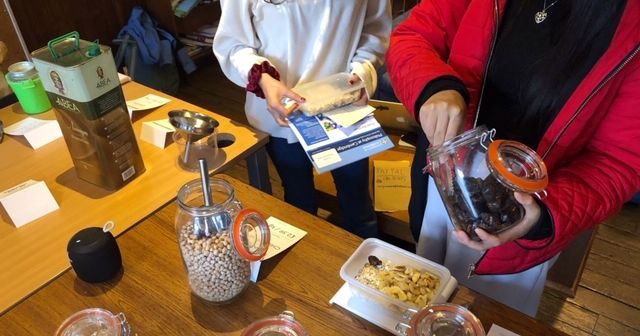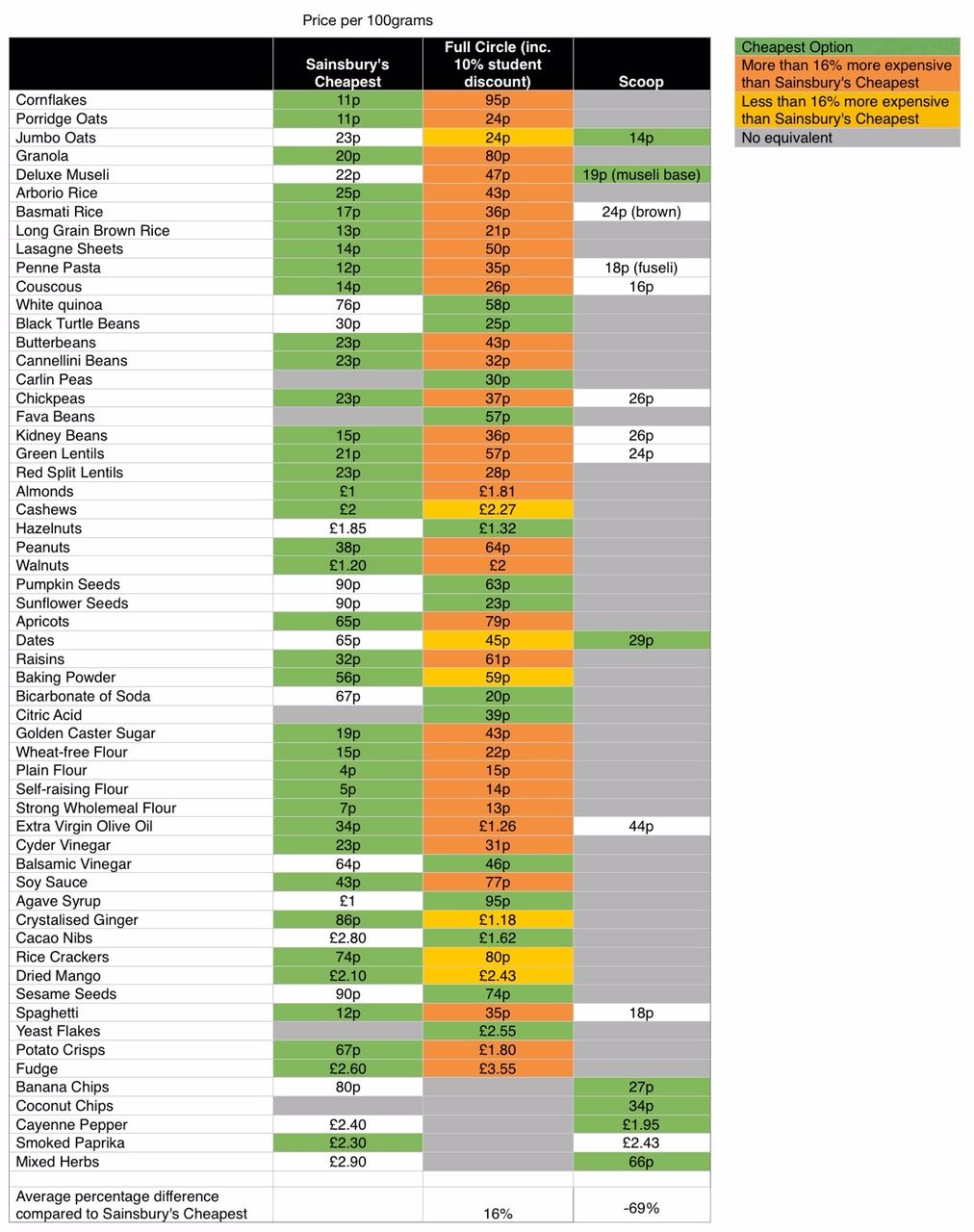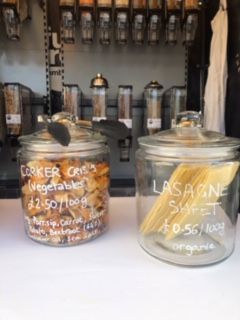
A guide to zero-waste shopping that won’t leave you with zero money
The Tab investigates Cambridge’s options for your weekly shop with a mind to help save the planet
You’ve seen David Attenborough narrate the mourning of a mother whale for its child, polluted to death by the plastic in the ocean. Yet many students still haven’t taken the plastic-free plunge and continue to pursue the packaged aisles of Sainsbury’s because it's the cheaper option. Their argument: that sustainability is not a luxury that the student budget can afford.
But is Sainsbury’s really the ‘cheaper option’? I’ve compared the price per 100g of products in Cambridge’s zero-waste shops, Full Circle and the student pop-up SCOOP, with Sainsbury’s cheapest off-the-shelf equivalents, so that you can answer that question for yourselves (without doing all the hard work).

A comprehensive comparative guide of all of your basic food items – essential for surviving the Cambridge ordeal
Yes, the majority of the market stand Full Circle’s prices are higher than Sainsbury’s equivalents. But this is not the case for all of their stock. If it's trendy health products you’re after, such as quinoa, seeds, cacao nibs and agave syrup, then Full Circle’s rates are actually considerably cheaper. You’ll also save some pennies on balsamic vinegar and hazelnuts if you choose Full Circle. The market stand even sells some products which are so trendy and niche that you won’t find them on the Sainsbury’s shelves: yeast flakes, Fava beans and carlin peas to name a few.
The theme of cheaper trendy food items continues at SCOOP, which sells banana chips, coconut chips and dates (a personal fave) for a fraction of the Sainsbury’s price and plastic. Oats, muesli and couscous are also stonkingly cheap at this non-profit student-run business, and many of their other products are only marginally more expensive than Sainsbury’s cheapest ranges. On average, products at SCOOP are a whopping 69% cheaper than Sainsbury’s cheapest equivalents.
Full Circle, being a profitable business with marked-up prices, is admittedly more expensive on average than Sainsbury’s cheapest. But only by 16%. As a savvy student, you might want to save that 16% for your VK budget in Cindies. That may be so, but I’d like to draw your attention to what that 16% could be invested into (other than the obvious reduction in plastic waste), and then you can decide whether or not it's worth it. Spoiler alert: it is.

Find Full Circle in Cambridge Market Square – open every day apart from Tuesdays
1. The first point to consider is that Sainsbury’s charges more per 100g of a 500g packet of pasta than it will for a kilo of pasta. As students with only one mouth to feed and limited cupboard space, we might be tempted to go for the less cost-effective, smaller quantity packet. With zero-waste shops, the price per 100grams is fixed, so you have the freedom to choose how much of a product you want to buy without having to compromise the value for money.
2. Most of Full Circle’s products are also organic, with the exception of a few random beans and baking items. For the purpose of this investigation I’ve used Sainsbury’s cheapest of the cheap ranges, but Sainsbury’s does have a ‘So Organic’ range which is significantly more expensive. Sainsbury’s non-organic apricots, for example, weigh in at 65p/100gram – cheap compared to Full Circle’s organic 79p/100g, right? But Sainsbury’s So Organic apricots are a huge £1.46/100grams.
3. These small scale businesses are set up by believers in radical positive change to save the world. SCOOP is run by student volunteers who give up their valuable time – we all have degrees, we’re all busy people. They do this for no personal benefit other than to work towards normalising zero-waste shopping. Let’s help these businesses pave the way for larger companies like Sainsbury’s to follow suit and make a real impact on the future of our world.

Environmentally-friendly and still affordable
BUT I DON’T OWN ANY CONTAINERS
You definitely do. Take this as an excuse to finish off that jar of peanut butter or that tub of ice cream (if you’re blessed enough to have access to a freezer). SCOOP and Full Circle also often have donated containers for you to use if you forget, but charity shops are a real treasure trove for cheap second-hand receptacles.
BUT THE STOCK IS TOO LIMITED AND MY BELOVED SAINSBURY’S IS ALWAYS OPEN
The stock is only limited to unprocessed, raw, vegan products, which are better for the environment and better for your health. Planning around SCOOP and Full Circle’s opening hours will help you shop more mindfully, making you less likely to overspend and impulse-buy, contributing not just to a healthier you, but a healthier wallet.
BUT I DON’T KNOW HOW TO COOK WITH DRY FOOD
Yes, preparing dry beans and pulses takes a bit more effort than draining them straight from a Sainsbury’s can, but all it takes is a bit of overnight soaking. You’ll be amazed at how much beans expand and be all the more satisfied with your bargain.
So cut the excuses and equip yourself with all the bottles and Tupperware you can carry. Let’s help students, local businesses and Greta win the fight against plastic pollution with an army of sustainable shoppers – jars at the ready!









































